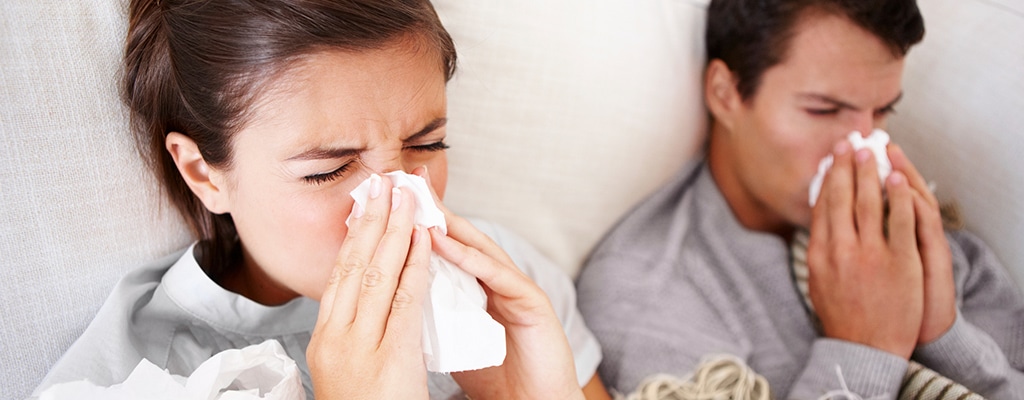
What is allergic rhinitis?
Allergic rhinitis, commonly known as hay fever or allergies, is an inflammation in the nose that occurs in individuals who have sensitivity to certain particles called allergens. Allergic rhinitis is triggered by an overreaction of the immune system to these allergens, causing nasal discharge and swelling. The condition may be accompanied by other nasal health issues, such as sinusitis or ear infections.
What are the types of allergic rhinitis?
There are two types of allergic rhinitis, that are dependent on the type of allergy from which a person is suffering. These forms of rhinitis are listed below:
Perennial Allergic Rhinitis
This form of rhinitis usually occurs in patients who have a sensitivity to dust mites, animal dander, or another allergen that occurs year-round. This is especially common when an individual lives/works in an environment with pests, animals or excessive dust.
What People Say About Us!
"Dr. Volpi is very efficient, confident and knowledgeable. I felt very comfortable with his diagnostic skills and treatment plan."
Click here to read more reviews.
Seasonal Allergic Rhinitis
Seasonal rhinitis occurs in patients who have a sensitivity to allergens that occur seasonally, such as pollen. This type of rhinitis generally only affects patients during the time of year when pollen is most prominent.
What causes allergic rhinitis?
Allergic rhinitis is caused by allergic reactions to particles, or allergens. Some common allergens that trigger rhinitis are:
- Pollen from trees, grass, or weeds
- Wood dust
- Chemicals
- Animal dander
- Cockroaches
- Dust mites
What are some allergic rhinitis symptoms?
Allergic rhinitis symptoms range in severity, depending on the individual and the amount of exposure to the allergen. Some common allergic rhinitis/hay fever symptoms are listed below:
- Excessive sneezing, especially just after waking up
- Runny nose (clear and thin drainage—thick, green drainage may indicate sinusitis)
- Postnasal drip
- Watery and itchy eyes
- Itchy ear, nose or throat
- Coughing
- Dark circles under eyes
- Headaches
- Hives
- Fatigue
What are the risk factors for allergic rhinitis?
Allergic rhinitis can occur in any individual at any age. However, some factors that may trigger or aggravate the condition include:
- Family history of allergies
- Smoking
- Exposure to:
- Air pollution
- Hairspray
- Perfumes
- Smoke
- Fumes
- Chemicals
- Cold temperatures
- Humidity
How is allergic rhinitis diagnosed?
There are three ways for New York ENT doctors to determine if a patient is suffering from allergic rhinitis or allergies. These include:
- Physical examination – If allergies are mild, a doctor may only need to conduct a physical exam and ask questions about symptoms. A doctor may also conduct a physical examination in conjunction with one of the other allergy tests.
- Skin prick test – The skin prick test is the most common test to determine allergies. Doctors expose the skin to several substances, and if patients have a sensitivity to any of them, a small red bump appears in the area.
- Blood test or radioallergosorbent test (RAST) – RAST tests measure the antibodies present in the bloodstream for each allergen, which indicates if a person has an allergy.
What are some allergic rhinitis treatment options?
Allergic rhinitis is treated with the following options, and sometimes requires a combination of treatments:
- Antihistamines
- Decongestants
- Eye drops
- Nasal sprays
- Allergy shots
- Prescription medication
If you are suffering from allergic rhinitis, the first step towards feeling better is to schedule an evaluation with an experienced ear, nose and throat doctor. Board certified physicians with New York ENT have extensive experience diagnosing and treating a wide variety of nasal conditions. Fill out the form on this page or call our office at 212-873-6036 to schedule an appointment today.



